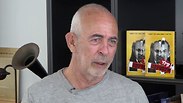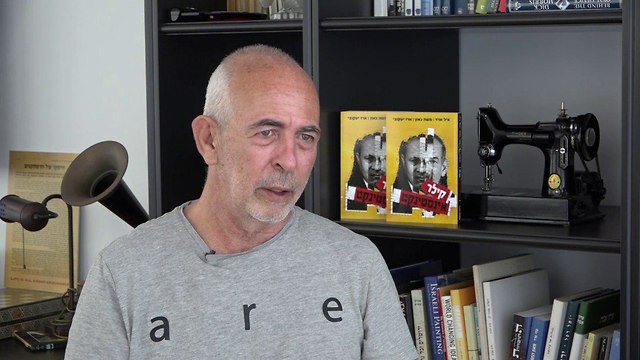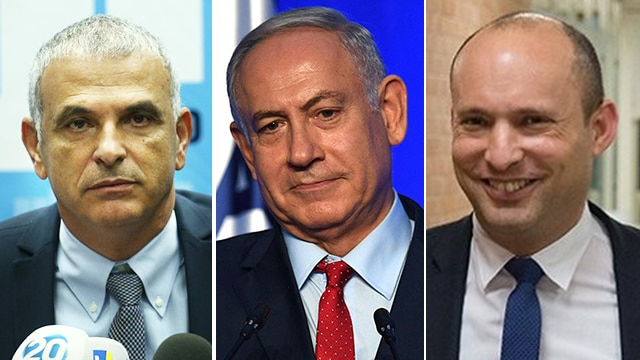
Eyal Arad
צילום: ליהי קרופניק
How campaign strategy shapes Israeli elections
From a plethora of parties to snappy messaging, expert political advisers weigh in on role of social media and factors most likely to sway voters when Israel goes to the polls on April 9.
Election season is heating up in Israel. With dozens of political parties and less than three months to go until Israelis head to the polls on April 9, contenders are jockeying for attention.
Campaign messages are being woven by a complex web of strategists, consultants and pollsters who have adopted new approaches. While posting billboards and signs remains a tactic employed by all parties, many have shifted the majority of their messaging to social media.
Lior Horev has worked on election campaigns in Israel for the past 25 years, including with former prime ministers Ariel Sharon and Ehud Olmert; former foreign minister Tzipi Livni; and – most recently – Finance Minister Moshe Kahlon.
Today, traditional media has taken a backseat to digital efforts. In fact, 80 percent of the content produced by Kahlon’s centrist Kulanu party goes online to Facebook, Instagram, Twitter, Snapchat and WhatsApp. Horev’s team produces between five and ten videos daily.
“If you film at 8:00, it’s edited by 9:00, it’s on air by 10:00 and it’s obsolete by noon, and then you need something new,” says Horev, who is again managing Kahlon’s campaign.
Political parties in Israel receive funding for their campaigns based on how many parliamentary seats they won in the previous elections.
“If you want private donations, they’re limited to about $1,300 and not more,” Horev says. “So our campaign is based on public financing and the budget is growing because you need to produce so much more content.”
Even the hot-button topics that historically have dominated Israeli election cycles are changing.
“The Palestinians will not be an issue; they’re out of this year’s election,” Horev says. “You’re going to see a lot about Iran and Hamas. But I would say it’s going to be based on personality. Who can replace (Prime Minister Benjamin) Netanyahu? And Netanyahu will of course say ‘nobody can.’”
Eyal Arad is one of Israel’s leading political strategists and was an adviser to Netanyahu for several years, as well as to Sharon, Olmert and Livni, among others.
“This campaign is going to be centered on the question of the prime minister’s indictment: yes or no?” Arad says in reference to the three ongoing corruption probes in which Netanyahu is embroiled. “It’s going to revolve around security and the personal issues of Mr. Netanyahu.”
In his recently published book “Killer Instinct,” which he co-authored with fellow political strategists Moshe Gaon and Dr. Erez Yaakobi, Arad looks at the ins and outs of Israeli campaigns.
One of his main theses is that with so many new parties to choose from, many voters remain on the fence until the very end.
“I think you could say that about 50% of the Israeli electorate at this stage is undecided,” Arad says. “Even if they have some inclination and are looking for answers I doubt they will get (them) this campaign season.”
As an example of a successful initiative, Arad highlighted the ruling Likud party’s recent controversial billboard attacking top Israeli journalists which caused a media frenzy. The poster features prominent media personalities who have regularly reported on the prime minister’s ongoing legal issues. It bears the slogan: “They won’t decide. You will decide.”
“The fact that a debate was created around the Likud’s advertisement means that they were able to set the agenda,” Arad says. “Are the media fair in their treatment of Netanyahu? Are they unfair? No matter what answer the viewer gives, the agenda was set up by Likud.
“That’s the real battle: who’s reacting to whom? The guy who sets the agenda is usually the guy who wins.”
Arad invokes as an example the 2016 US election. While Democratic nominee Hillary Clinton consistently polled higher than Donald Trump, the Republican candidate still managed to win.
“(Trump) was able to set the agenda about ‘Making America Great Again’ and how Americans can ‘Make America Great Again,’” he says. “His message appealed to enough people that at the end of the day he won.”
Nevertheless, even if Netanyahu continues to move the political barometer, Horev believes that his fate may already be sealed and that the next round of voting is just around the corner.
“These elections are strategically not important,” Horev says. “They’re an interval between now and the stage when Netanyahu will have to step down because of the accusations. So I think this is really just a pre-campaign for the real thing which is going to happen in a year or a year-and-a-half from now.”
Article written by Maya Margit. Reprinted with permission from The Media Line













